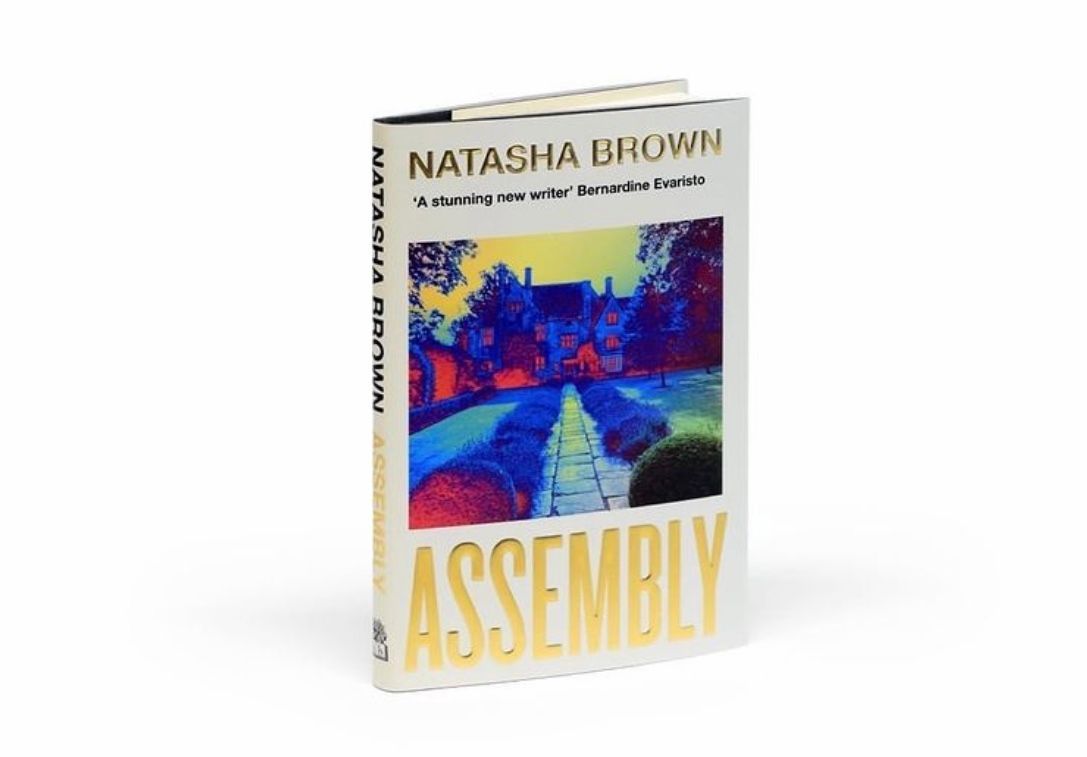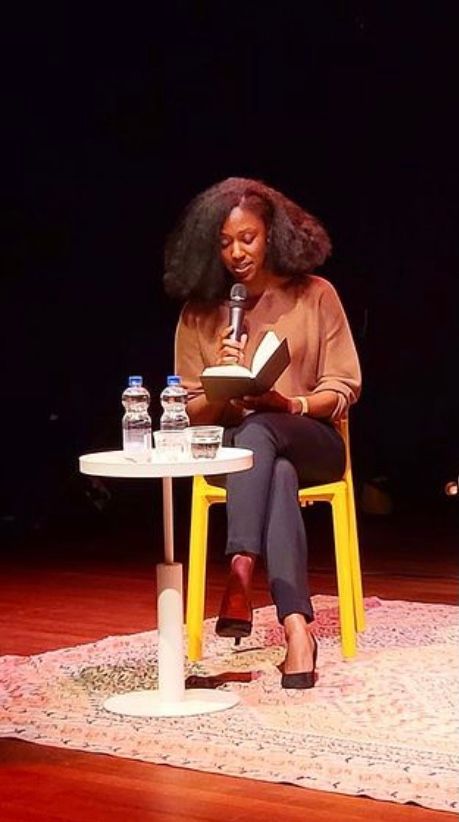Don't Upset ooMalume: A Guide to Stepping Up Your Xhosa Game
Nqandeka writes with an easy familiarity of the Xhosa cultural background showing how the ordinary
Let me first cast my controversial colours on the mast: This novella starts brilliantly with acute powers of observation and psychological insight. But the story fizzles towards the end. I think the writer was under pressure to publish and so inserted her writing notes into the manuscript in a non integrated manner. I hazard to put the blame on her publishers who probably wanted to publish the book while the hype of black new writers was still trending. That said, the natural talent of Natasha Brown is evident here. I look forward to reading more of her work in the future.

The thesis of the book is best said here by the protagonist:
Any value my words have in this country is derived from my association with its institutions: universities, banks, government. I can only repeat their words and hope to convey a kind of truth. Perhaps that’s a poor justification for my own complicity …
The country is the United Kingdom with its extant pretences of the Great Britain empire. The story is told by a young black British woman of Jamaican descent who works in a cutthroat financial sector environment of London bank industry. The biography of Natasha Brown says she has spent a decade working in financial services after studying Maths at Cambridge University. It is obvious in the novel that the author has an insiders knowledge of this world where “[t]here’s no success, only the temporary aversion of failure.”
The unnamed protagonist is suffocating from her own material success, which she feels it makes her complicit in promoting a capitalist system that oppresses black people the most. She's having an affair with someone from the British aristocratic crop, old money, elite politics and all. The Assembly takes place in his old rural English home where she has to navigate herself into the accepted decorum of British elite class, making herself more complicit in her own oppression as a price of climbing the social ladder into the ruling British society:
I will be watched, that’s the price of admission. They’ll want to see my reactions to their abundance: polite restraint, concealed outrage, and a base, desirous hunger beneath. I must play this part with a veneer of new-millennial-money coolness; serving up savage witticisms alongside the hors d’œuvres. It’s a fictionalization of who I am, but my engagement transforms the fiction into truth. My thoughts, my ideas – even my identity – can only exist as a response to the partygoers’ words and actions. Articulated along the perimeter of their form. Reinforcing both their selfhood, and its centrality to mine. How else can they be certain of who they are, and what they aren’t? Delineation requires a sharp, black outline.

The novel brilliantly depicts and illuminates the invidious situations of micro aggression a black woman has to go through in the British society to gain acceptance. Her white colleagues, for instance, treats her like a glorified secretary who owes her position to diversity quotas. At the centre of her problems is an identity crisis, the sickening feeling of being weightless and without any strong roots. The story is told with a cool illuminating intelligence that distills everything with an microscopic eye of someone who knows they're falling, in slow motion, into an existential crisis: “Born here, parents born here, always lived here – still, never from here. Their culture becomes parody on my body."
You keep expecting to hear the sickening thud of her body crashing into the pavement of her rootlessness; but it doesn't come. It is not in her cancer diagnosis, not in her ambivalence about her lover and his alien world of concealed hostility towards her:
His parents tolerated me. As good, socially liberal parents would. They were patient with their son in the matter of his relationships. They imagined, I imagined, that this was a phase. Why prolong it with negative attention?
Neither is it in a yawning distance her education and material success has yanked between her and the Jamaican culture she supposed to have inherited though she's always been that London cousin who has never been to Jamaica. She's just weightlessly floating through everything, displeased by all and nothing in particular, melting and solidifying at the same time: “I am everything they told me to become. Not enough.”

The cancer is in that 'not enough'. Whatever you do it'll never be enough, because it is your essence they reject, not your abilities or lack of. It is your Being they reject because it threatens their own, their comfortable illusions of contrived white supremacy. It threatens “[f]utures and children and purity – not in any crass, racial sense, no. Of course not. It was a purity of lineage, of history: shared cultural mores and sensibilities. The preservation of a way of life, a class, the necessary higher echelon of society. Her son’s arrested development (and what was this relationship, if not childish folly?) should not wreck the family name.”
Of course they pay lip service to things like decolonisation, so long as they don't become too personal, trying to drive them off the cliff of privelege, or away from their comfort-zones derived from the ancient of days. And so the question stands, how we "…must engage decolonization as a critical practice if we are to have meaningful chances of survival … yes, yes! But I don’t know how. How do we examine the legacy of colonization when the basic facts of its construction are disputed in the minds of its beneficiaries?”
Somewhere Brown's unnamed protagonist achingly says:
I am everything they told me to become. Not enough.
The NOT ENOUGH veberates throughout the book whose strongest quality is a light minimalist voice about heavy topics.
UK Vogue featured Natasha recently, checkout the gorgeous pics